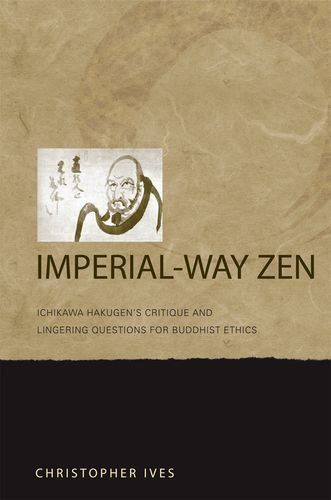
Imperial-Way Zen Ichikawa Hakugen's Critique and Lingering Questions for Buddhist Ethics
Despite the importance of Ichikawa¿s writings, this volume is the first by any scholar to outline his critique. In addition to detailing the actions and ideology of Imperial-Way Zen and Ichikawa¿s ripostes to them, Christopher Ives offers his own reflections on Buddhist ethics in light of the phenomenon. He devotes chapters to outlining Buddhist nationalism from the 1868 Meiji Restoration to 1945 and summarizing Ichikawa¿s arguments about the causes of Imperial-Way Zen. After assessing Brian Victoria¿s claim that Imperial-Way Zen was caused by the traditional connection between Zen and the samurai, Ives presents his own argument that Imperial-Way Zen can best be understood as a modern instance of Buddhism¿s traditional role as protector of the realm. Turning to postwar Japan, Ives examines the extent to which Zen leaders have reflected on their wartime political stances and started to construct a critical Zen social ethic. Finally, he considers the resources Zen might offer its contemporary leaders as they pursue what they themselves have identified as a pressing task: ensuring that henceforth Zen will avoid becoming embroiled in international adventurism and instead dedicate itself to the promotion of peace and human rights.